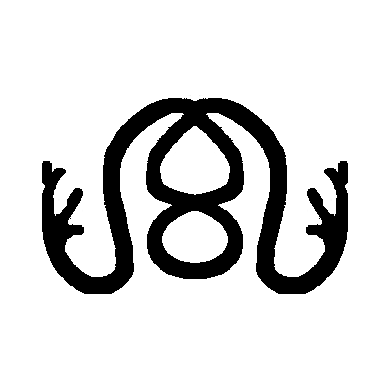(The scene is empty. Only a small rivulet and other physical elements of [The Grove] seem to emanate in a short radius around arethousa.)
 genevieve: Could you repeat for us what you said last night?
genevieve: Could you repeat for us what you said last night? arethousa: About the broken mirror?
arethousa: About the broken mirror? genevieve: If you could tell us more at length about it perhaps we will be able to feel out the edges of this stage more properly, see what we have to work with here.
genevieve: If you could tell us more at length about it perhaps we will be able to feel out the edges of this stage more properly, see what we have to work with here. arethousa (smiling): I think you just did that.
arethousa (smiling): I think you just did that.(They both move to another spot on the emtpy stage. No reference points can be discerned.)
 arethousa: Will this feeling about remain in the final version?
arethousa: Will this feeling about remain in the final version? genevieve: I think I'll leave it in, for now. I think there's some charm in people being able to see the skeleton of things. Which sort of brings us back to my original question.
genevieve: I think I'll leave it in, for now. I think there's some charm in people being able to see the skeleton of things. Which sort of brings us back to my original question. arethousa: Right. Well, I think the key point in my speech from last night was that we always appear as in a mirror, correct? We've established this a while ago. "Through a glass darkly", if you will. When we, let's say, modern bodies, think of mirrors they are usually conceptualised as invisible. One merely sees what is reflected in them. This is not so much of a problem when one never looks into the mirror, because one is the mirror. But to spirits like us, reflections looking back into the mirror, what do we see?
arethousa: Right. Well, I think the key point in my speech from last night was that we always appear as in a mirror, correct? We've established this a while ago. "Through a glass darkly", if you will. When we, let's say, modern bodies, think of mirrors they are usually conceptualised as invisible. One merely sees what is reflected in them. This is not so much of a problem when one never looks into the mirror, because one is the mirror. But to spirits like us, reflections looking back into the mirror, what do we see? genevieve: Here it comes…
genevieve: Here it comes… arethousa: Look, you may have heard this, but you want me to recount it for a reason, right? To be part of your big play?
arethousa: Look, you may have heard this, but you want me to recount it for a reason, right? To be part of your big play? genevieve: Yes, please continue.
genevieve: Yes, please continue. arethousa: So, what do we see? For that we need to become aware that there is in fact no flawless mirror. In the water, it is obvious; the ripples are apparent. In a looking glass, too, we can see its structure. A discoloration, spots of rust, a chip or crack. Reminders that there is in fact something doing the reflecting. Better yet, if the mirror is completely broken, we can pick up a piece—carefully please!—and look at it from different angles.
arethousa: So, what do we see? For that we need to become aware that there is in fact no flawless mirror. In the water, it is obvious; the ripples are apparent. In a looking glass, too, we can see its structure. A discoloration, spots of rust, a chip or crack. Reminders that there is in fact something doing the reflecting. Better yet, if the mirror is completely broken, we can pick up a piece—carefully please!—and look at it from different angles.
 genevieve: And?
genevieve: And? arethousa: The broken mirror, or the subtle discoloration, the rust spots. They are what's left of the illusion of our old self. Just as real as we are, but different, somehow unique. The mirror is always its own thing.
arethousa: The broken mirror, or the subtle discoloration, the rust spots. They are what's left of the illusion of our old self. Just as real as we are, but different, somehow unique. The mirror is always its own thing. genevieve: So, the mirror is Ego? Is it "Odile"?
genevieve: So, the mirror is Ego? Is it "Odile"? arethousa: Usually you are the one who is so good at analysing these things, so I can't really say at this point. I just know it was important to tell this story yesterday.
arethousa: Usually you are the one who is so good at analysing these things, so I can't really say at this point. I just know it was important to tell this story yesterday. genevieve: Yes, and now it—the retelling of it—is the first scene, seen from a particular chronological angle at least, in this play. I am content.
genevieve: Yes, and now it—the retelling of it—is the first scene, seen from a particular chronological angle at least, in this play. I am content. arethousa: How, if it all, and assuming there will be more scenes, or even acts, will you be organising all of this?
arethousa: How, if it all, and assuming there will be more scenes, or even acts, will you be organising all of this? genevieve: I'm not exactly sure yet, but we're going to find out.
genevieve: I'm not exactly sure yet, but we're going to find out.